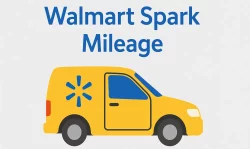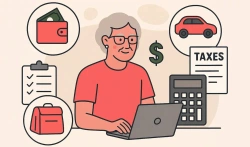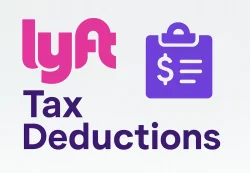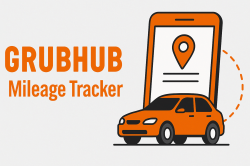Table of Contents
Are you wondering what a gig worker is? A gig worker earns money doing short-term jobs instead of a traditional full-time job. This type of work is becoming very common thanks to technology and new ways of working.
What is a Gig Worker?
A gig worker is simply someone who gets paid for single projects or tasks, often called “gigs.” This means they don’t have a steady paycheck from one employer for a set number of hours each week. Instead, they work when they want to and for different companies or people.
Think of someone who drives for a rideshare app like Uber or Lyft. They decide when they turn on the app and when they offer rides. They complete one job (a ride) and then look for another. This is a classic example of a gig worker. Other examples include people who deliver food, build websites on a project basis, take care of pets, or do freelance writing.
This way of working is much different from having a regular job with a set schedule and salary. Gig workers are usually seen as independent contractors, not employees.
Are Gig Workers Employees or Independent Contractors?
This is a really important question, and it’s a big topic of discussion right now. Generally, companies that use gig workers classify them as independent contractors.
What’s the difference?
- An employee typically works set hours, is trained and supervised by the company, uses company tools and equipment, and has taxes taken out of their paycheck by the employer. They also get benefits like health insurance and potentially paid time off.
- An independent contractor usually sets their own hours, uses their own tools and equipment, and works more independently. The company hiring them doesn’t typically control how the work is done, only what the final result should be. Taxes are not taken out of their pay; they are responsible for paying their own taxes. They don’t get employee benefits.
The companies that run gig platforms (like Uber, DoorDash, etc.) argue that because gig workers have so much flexibility and control over when and how they work, they should be independent contractors. However, labor groups, workers, and some lawmakers argue that because the platforms control pay rates, set standards for service, and can discipline or remove workers from the platform, these workers should be considered employees and get more protections and benefits.
Laws about this are changing. Some states in the US have passed or are considering new laws to give gig workers more rights and benefits, sometimes requiring companies to treat them more like employees or provide some employee-like benefits even while keeping the independent contractor status. Keeping up with laws in your area is wise if you are a gig worker.
Getting Started as a Gig Worker: Actionable Steps
Ready to explore the world of gig work? Here are some concrete steps:
- Define Your Goals: Figure out why you want to do gig work (extra money, main job, flexibility, etc.) and what kinds of gigs fit your skills.
- Research Platforms: Look into different gig platforms in your area and for the type of work you want to do. Compare requirements, typical pay, and worker reviews.
- Check Legal Requirements: Understand the basic legal and tax rules for independent contractors where you live.
- Gather What You Need: Make sure you have the necessary equipment (car, phone, computer, tools, etc.) and meet any age or background check requirements.
- Sign Up Smartly: Pick one or two platforms to start with. Read their terms carefully.
- Track Everything: From day one, keep good records of your earnings, expenses, and mileage for tax purposes. Consider using a 1099 tax calculator to estimate your taxes and deductions.
FAQ
What is a gig worker?
A gig worker is an independent contractor or freelancer who takes on short-term, project-based “gigs” rather than traditional full-time employment. Technology has revolutionized gig work. Gig are more accessible thanks to online platforms (Fiverr, Upwork) and gig delivery apps (DoorDash, Instacart, Amazon Flex, Shipt, Walmart Spark, Grubhub for drivers, etc.)
How do gig workers handle their taxes?
Gig workers typically report income on Schedule C and can deduct business expenses—like mileage—by keeping detailed records of each trip’s date, purpose, and miles driven. They might also use exports created by the Gridwise app for their taxes.
How does MileageWise help gig workers?
MileageWise automatically tracks and categorizes trips, generates IRS-compliant mileage logs, and simplifies expense reporting so gig workers can maximize deductions and streamline tax filing.



















